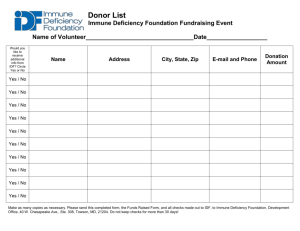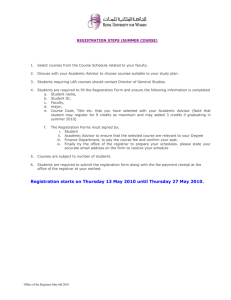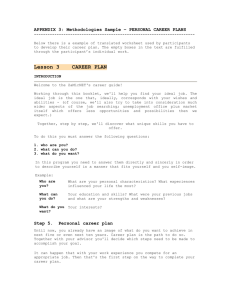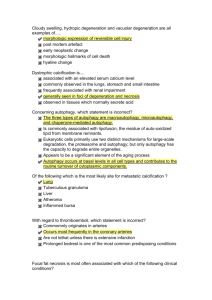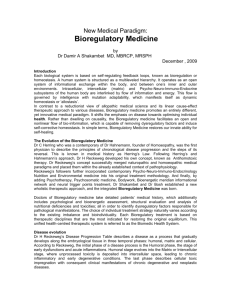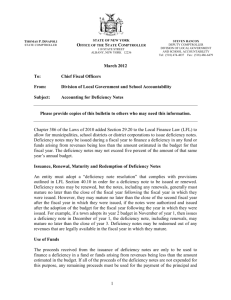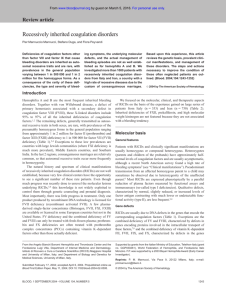Objet : Information concernant un élève ayant des besoins particuliers
advertisement
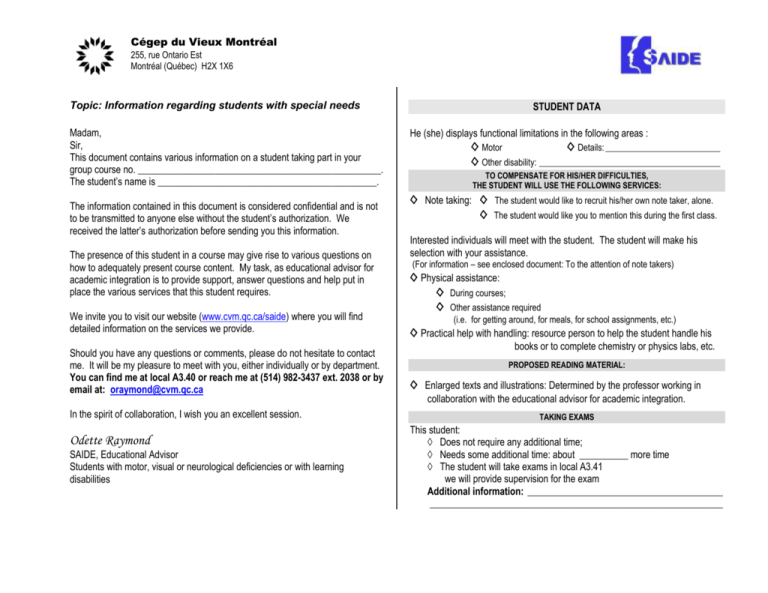
Cégep du Vieux Montréal 255, rue Ontario Est Montréal (Québec) H2X 1X6 Topic: Information regarding students with special needs Madam, Sir, This document contains various information on a student taking part in your group course no. __________________________________________________. The student’s name is _____________________________________________. The information contained in this document is considered confidential and is not to be transmitted to anyone else without the student’s authorization. We received the latter’s authorization before sending you this information. The presence of this student in a course may give rise to various questions on how to adequately present course content. My task, as educational advisor for academic integration is to provide support, answer questions and help put in place the various services that this student requires. We invite you to visit our website (www.cvm.qc.ca/saide) where you will find detailed information on the services we provide. Should you have any questions or comments, please do not hesitate to contact me. It will be my pleasure to meet with you, either individually or by department. You can find me at local A3.40 or reach me at (514) 982-3437 ext. 2038 or by email at: oraymond@cvm.qc.ca In the spirit of collaboration, I wish you an excellent session. Odette Raymond SAIDE, Educational Advisor Students with motor, visual or neurological deficiencies or with learning disabilities STUDENT DATA He (she) displays functional limitations in the following areas : ◊ Motor ◊ Details: __________________________ ◊ Other disability: _________________________________________ TO COMPENSATE FOR HIS/HER DIFFICULTIES, THE STUDENT WILL USE THE FOLLOWING SERVICES: ◊ Note taking: ◊ The student would like to recruit his/her own note taker, alone. ◊ The student would like you to mention this during the first class. Interested individuals will meet with the student. The student will make his selection with your assistance. (For information – see enclosed document: To the attention of note takers) ◊ Physical assistance: ◊ During courses; ◊ Other assistance required (i.e. for getting around, for meals, for school assignments, etc.) ◊ Practical help with handling: resource person to help the student handle his books or to complete chemistry or physics labs, etc. PROPOSED READING MATERIAL: ◊ Enlarged texts and illustrations: Determined by the professor working in collaboration with the educational advisor for academic integration. TAKING EXAMS This student: ◊ Does not require any additional time; ◊ Needs some additional time: about __________ more time ◊ The student will take exams in local A3.41 we will provide supervision for the exam Additional information: ________________________________________ ____________________________________________________________ HOW TO ACT WITH REGARD TO THIS STUDENT Here are a few guidelines that may help in your communications with a student who presents functional limitations. Just like all other students, he is responsible for his success. He must therefore ask for explanations and information on his own. Moreover, we encourage him to ask questions. Without discrimination or privileges i.e.: What I accept or reject for other students, I accept or reject for the student who has a deficiency, physical or other. Therefore, I have the same level of requirements with regard to this student. It is however possible that this student will use means outside the norm to meet the same requirements. Example: Work must be handed in on the same date for everyone. To consider him, first and foremost a student, rather than a handicapped individual. To ensure that he is evaluated on the same basis as the others. Example: Work handed in is sloppy and full of mistakes. Consequently I do not correct it and he must re-submit presentable work one week later. If you have questions regarding the student’s functional limitations, do not hesitate to question him, he will be pleased to answer you. If you are not sure how to act with regard to this student, speak with the student himself or with an educational advisor for integration. In any situation where you are not sure what attitude to take, where you are afraid of making a faux pas…The following question may guide you: “How would I react if another student exhibited such behaviour or was not meeting my expectations?” The answer that comes to mind is the attitude you should adopt. What to do when a student presents a speech impediment … Wants to ask a question, answer a question or to make a comment, etc.: Allow him to say what he has to say, even if it takes more time; Ask him to repeat. If you did not understand what was said, he will repeat it in another way; You can ask him to write (type or longhand) what he is trying to say; Ask another student who may understand him better, to act as an interpreter. The more time you spend listening to him speak, the easier it will be to grasp what he is saying. Source : Joanne N. Senécal, janvier 1999 Mise à jour le 22 mars 2004 ANNEX Additional information on various terms used Types of written communication This term refers to the way a person receives written information for reading or writing. The types of written communication vary greatly from one student to the other. Some have not necessarily acquired or developed the skills, visual or other, required to use the various existing modes of communication, or to take advantage of the technical supports already in place for reading and writing. In addition, certain individuals favour a different mode of communication than others with the same degree of vision. It is therefore necessary to evaluate each student’s capabilities in order to put into place the essential measures that will ensure their academic success. The determining factors in the acquisition of skills relative to written communication are based on the nature of the motor deficiency and the date of its appearance. Deficiency The “Office des personnes handicapées du Québec” (OPHQ) defines deficiency as the result of a pathological state that is objective, measurable and possible to diagnose1. It is the absence or malfunctioning of a body part or organ. A deficiency leads to limitations according to its nature, be it sensory, motor or other. Functional limitations The OPHQ indicates that these restrictions are limits or lack of ability in the execution of certain movements, certain gestures or certain activities2. Functional limitations may be compensated by specific equipment or devices or palliative services that permit the individual to execute activities in a manner that is different from the others but that allows him to obtain the same results. 1 2 OPHQ, À part … égale, l’intégration sociale des personnes handicapées un défi pour tous, 1984. OPHQ, À part … égale, l’intégration sociale des personnes handicapées un défi pour tous, 1984.


